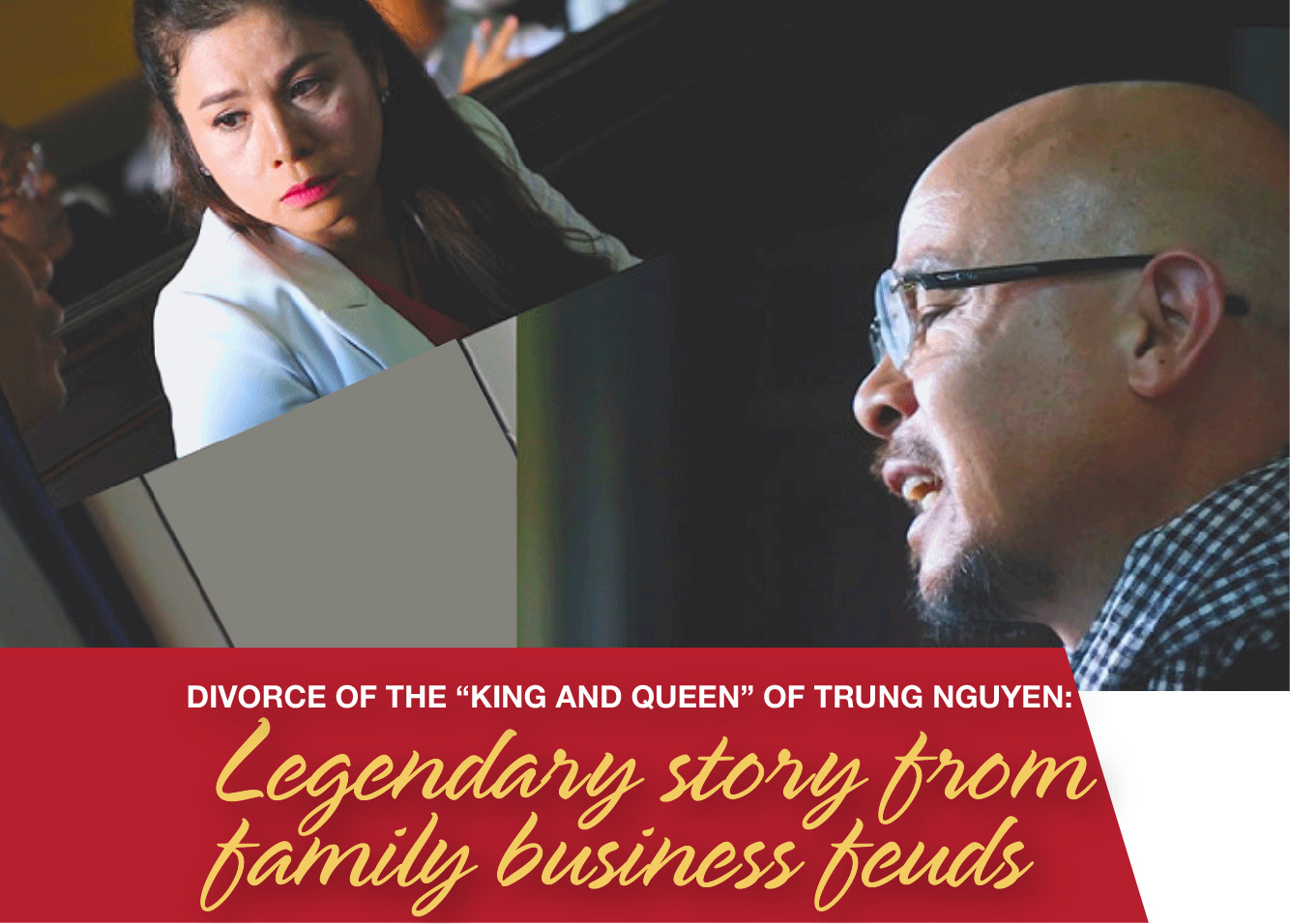The family business feuds are always persistent, and the beneficiaries are certainly nemesises.

In business history, we has witnessed quite a few family feuds. Not only power, asset division but influence of the family also significantly deteriorates. This is also considered as an opportunity for their competitors to arise to compete with.
It can be seen from the long-running 60-year feud between two rival brothers, also the owners of the two popular shoe brands Adidas and Puma. Originated from opposing personality traits, brothers Adolf (Adi) Dassler and Rudolph (Rudi) divided family business, setting up two separate shoe brands called Adidas and Puma named after their names.

The war between the Adidas and Puma even led to the split between two adjacent towns where the two brothers lived. The town became known as “the town of bent necks” due to residents always looking down at a person’s shoes before deciding whether to talk to them.
Their competitor Nike gained the most benefits from the rivalry between the two. While the two were hard at work competing against one another, Nike, which was much disadvantageous, was quietly gaining the market share to dominate the sports shoe market, far exceeding both Adidas and Puma

Recently, the billion dollar divorce between the billionaire Jeff Bezos – Amazon’s owner is also in the spotlight.
With total asset value of USD 137 billion, division of assets of the couple is also not that easy as the majority of assets owned by Jeff Bezos are from equity stake at Amazon, and Bezos could not lose his control over the company.

Similarly to other family feud, the epic divorce of Dang Le Nguyen Vu and Le Hoang Diep Thao has lasted for over 3 years from 2015 up to present. This has certainly caused Trung Nguyen quite a few troubles.
The crux of this persistent divorce is how the Trung Nguyen Group could be split. Le Hoang Diep Thao once proposed to Trung Nguyen Group into 2 groups of Trung Nguyen and G7 for Dang Le Nguyen Vu to choose at his disposal. Mrs. Thao also requested Mr. Vu to support in feeding their four children by providing 5% of equity stake of Trung Nguyen.

Mr. Vu, on the other hand, proposed to enjoy 70% of equity stake to decide on all strategies of the Group and settle the value of shares currently owned by Mrs. Thao in cash to have absolute control over Trung Nguyen at his discretion. In the end, Mr. Vu does not want Trung Nguyen Group to be divided.

In particularly, G7 brand is mainly associated with instant coffee products of Trung Nguyen Group whereas Trung Nguyen brand is mainly associated with roasted and ground coffee products and some instant coffee products displayed in the coffee shop chain. Regardless of the brand, both Mr. Vu and Mrs. Thao could continue doing business with well-established brands in the domestic and foreign markets.

However, the division will lead to unavoidable implication, that is, dragging Trung Nguyen down in the competition with its rivals. Trung Nguyen together with Vinacafé Bien Hoa of Masan and Nescafe of Nestle are currently creating a tripodal position in Vietnamese coffee market with the similar business scale. In terms of operating results, Trung Nguyen is far more exceeding Vinacafé Bien Hoa.
When being divided into two separate businesses with much lower scale than their two old rivals, Trung Nguyen and G7 will switch to become direct rivals of each other.

Trung Nguyen’s business results remain stable with net revenues from VND 3,800 billion to 4,000 billion over the past four years from 2014 to 2017. Vinacafé Bien Hoa’s revenues from coffee decreased from VND 2,300 billion in 2014 to VND 1,700 billion in 2017, accounting for half of the total revenues.
In 2014, Trung Nguyen recorded VND 1,300 billion pre-tax profit, a four-fold increase as compared to 2013. In 2015, conflicts in Trung Nguyen Group started, in the following years of 2016-2017, Trung Nguyen continued to see a decline in profits to VND 768 billion and 681 billion respectively.
While Trung Nguyen is finding ways to resolve existing problems, Vinacafé Bien Hoa has had a drive for growth from energy drink product line, narrowing the profit gap between the two companies.
Regarding Vinacafé Bien Hoa’s product mix, Masan Consumer report indicated that revenues from coffee grew by 11% from VND 1,532 billion to VND 1,708 billion thanks to increased product volume.

Amidst the not-much-optimistic expectation of the instant coffee sector and Trung Nguyen’s conflicts between key management, Vinacafé Bien Hoa has had a new drive for growth: Wake-up 247 coffee-flavored energy drink.
Family feuds, divorces between people in power who join hand together to control a business are long-going battle. And this will deteriorate their own business, from which their rivals will in turn enjoy tangible benefits.
On the life’s highway, we usually come to realize happiness from rear view mirror. Thus, thing does not lie in the location we are standing but the direction we are following.




